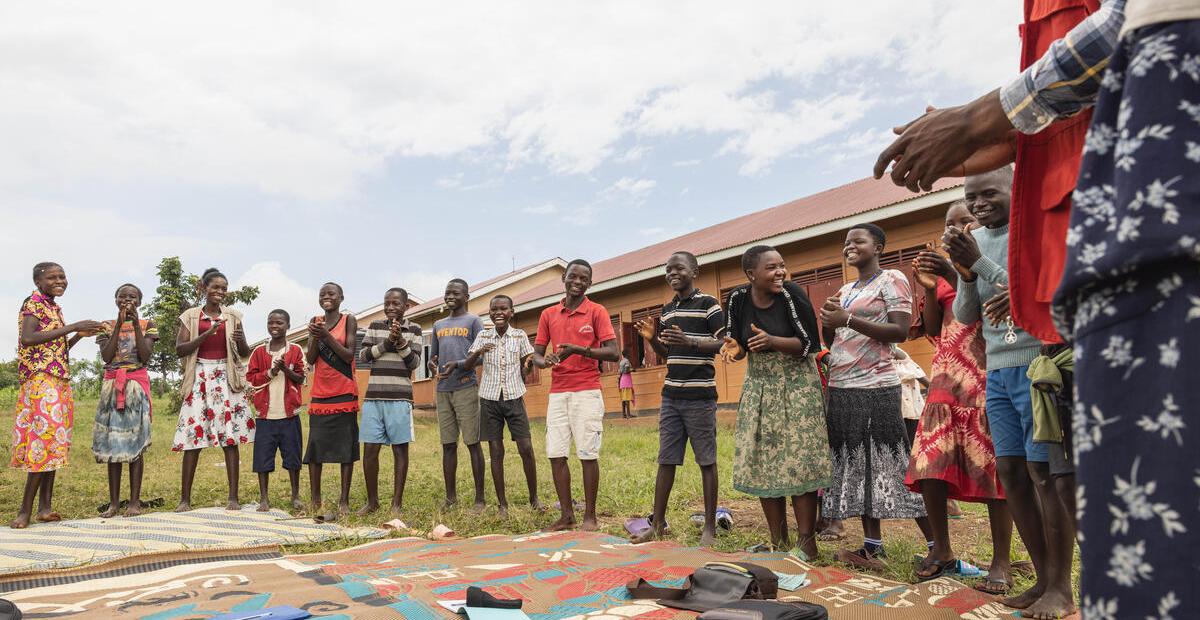Skills Building Workshops
• Friday, May 12, 2023 •

On Friday, May 12, RKSM participants had the option to attend skills building workshops. Click on each title below to learn more about each option:
- Inclusive Human-Centered Design for More Impactful Programming
- Using a Recurrent Monitoring Survey to Measure Resilience and Support Adaptive Management in the Face of Shocks
- Using the Theory of Change for Adaptive Management Decision-Making
- Centering Local Knowledge and Social Inclusion in our Practice
Inclusive Human-Centered Design for More Impactful Programming
Learn how to design more inclusive, sustainable services and programming, using human-centered design (HCD). During this session, you will join a group of dynamic practitioners and designers to take an iterative approach to program design and adaptive management, with a focus on fragile and emergency contexts. You’ll examine a range of existing HCD tools and techniques across the food security, agriculture, WASH, gender, and social inclusion sectors, and learn how to apply them in humanitarian and development programming. After practicing with case studies, group work, and examples from personal experience, you will be ready to apply an easy-to-use toolbox of HCD approaches to your own work.
During this full-day workshop, participants will use an iterative approach and practice co-creation to:
- Explore the core process of HCD through case-based examples;
- Discuss how HCD can support adaptive management across the humanitarian-development continuum;
- Identify how and when to use HCD;
- Map how to apply HCD within participants’ unique contexts and next steps; and
- Discuss opportunities for continued cross-team or organizational collaboration to explore and enhance HCD skills.
Through joint facilitation, this workshop will bring together the expertise of GAYA, PRO-WASH & SCALE, and Implementing Partners.
Using a Recurrent Monitoring Survey to Measure Resilience and Support Adaptive Management in the Face of Shocks
Would you like to collect near real-time data on how at-risk populations are responding to shocks? Want to learn how to use this info to adjust program implementation? Join this workshop to learn how a recurrent monitoring survey (RMS) can make your program more effective and agile in dynamic operating environments. Unlike typical program monitoring, RMS focuses on the relationship between commonly experienced shocks, responses, and changes in well-being in the project target area, zeroing in on individuals and households. Importantly, data collection is triggered by a shock or occurs within specific intervals when shocks/stresses are likely to happen (e.g., during lean and monsoon seasons), surveying the same individuals and/or households over time.
During this full-day workshop participants will explore:
- Diverse approaches to RMS and how it differs from typical program monitoring;
- Key considerations for designing and implementing RMS to support adaptive management in shock-prone programming environments; and
- Challenges to developing RMS and exchange lessons with those who have participated in RMS design and implementation.
Through joint facilitation, this workshop will bring together the expertise of REAL and Implementing Partners. It will build upon the previously published “Guidance Note #6, “Recurrent Monitoring Surveys” from the Practical Guidance Note Series.
Using the Theory of Change for Adaptive Management Decision-Making
Did you know that the Theory of Change (TOC) can serve as a powerful tool for adaptive management? Come explore how you may be able to further leverage your activity’s TOC to inform programmatic decision-making. During this collaborative workshop, you will have the opportunity to share your own experiences using your TOC, hear from fellow practitioners, and engage in practical exercises.
During this workshop, participants will be able to explore:
- The value of the TOC as an adaptive management tool;
- How the TOC can inform decision-making around programmatic design refinement;
- What kind of data or information is needed to inform the TOC review; and
- Which points in the program cycle are most useful to review the TOC for decision-making and how the review might differ based on the program cycle stage.
Through joint facilitation, this workshop will bring together the expertise of PCS, IDEAL, and Implementing Partners.
Centering Local Knowledge and Social Inclusion in our Practice
Centering local knowledge and resources in our programming is vital not just for the practice of locally-led development but also for building resilience. In this half-day workshop, we will undertake a sense-making exercise to arrive at a common understanding of three key concepts that underpin locally led development: local knowledge and resources, participation, and social inclusion. We will delve into what local knowledge entails, what it can include but typically does not, and techniques to implement this expanded understanding of local knowledge through a facilitated discussion among participants. Recognizing the challenges of participation and social inclusion, we will also examine the key role local knowledge can play in tackling community dynamics that often impede social inclusion and participation. This will be a highly interactive workshop where participants will build on their own experience and knowledge through a process of mutual learning and capacity strengthening.
During this workshop, participants will learn:
- The core components of locally-led development, their importance, and how to apply these to programming.
Through joint facilitation, this workshop will bring together the expertise of the Movement for Community-led Development and implementing partners.
Questions? Contact us at rksm-horn@fsnnetwork.org